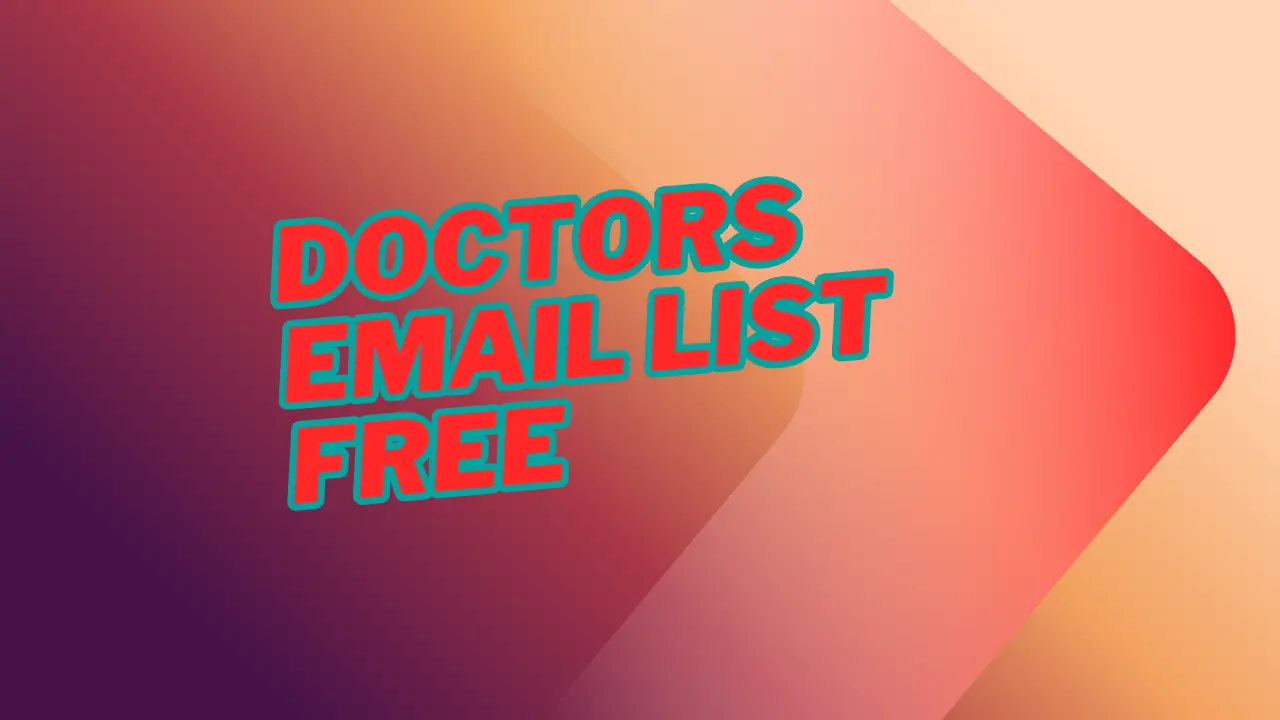The allure of a "free" list is undeniable. For a startup pharmaceutical company, a medical device manufacturer, or a healthcare recruitment agency, direct access to doctors could be a game-changer. They Get real, working email leads. Only at website: phone number list your lead generation partner. envision sending out targeted emails about their latest products, services, or job openings, bypassing the traditional, often expensive, marketing channels. The promise of an instant database of thousands of healthcare professionals seems like the ultimate shortcut to success. However, this dream quickly turns into a nightmare when you consider the quality and legitimacy of these lists.
The first major red flag is the source of these "free" lists
Where do they come from? They are often compiled through unethical means, such as scraping public websites, forums, and social media profiles. The data is often outdated, incomplete, or simply incorrect. You might find email addresses that have been abandoned for years, belong to retired doctors, or are riddled with typos. Sending emails to these addresses will not only be a waste of your time and effort but will also significantly damage your sender reputation. Internet service providers (ISPs) and email platforms like Gmail and Outlook are highly sophisticated in detecting and flagging unsolicited bulk emails. They will quickly identify your campaign as spam, and your emails will end up in junk folders or be blocked entirely.
Beyond the technical issues, there are significant ethical and legal implications to using a "free" doctor email list. Most countries have strict data privacy laws, such as the General Data Protection Regulation (GDPR) in Europe and the CAN-SPAM Act in the United States. These laws require you to have explicit consent from individuals before sending them marketing emails. The doctors on a "free" list have almost certainly not given you their consent. Sending them unsolicited emails is a violation of their privacy and can result in hefty fines and legal action. Furthermore, using such a list is a breach of professional ethics. It tarnishes your brand's reputation and signals to the medical community that you are not a trustworthy partner. Building trust is paramount in the healthcare industry, and starting a relationship with a breach of trust is a surefire way to fail.

What are the legitimate alternatives to these "free" lists?
The most effective and ethical approach is to build your own email list organically. This involves creating valuable content—such as white papers, webinars, research summaries, and industry news—that doctors would be genuinely interested in. You can then promote this content on professional platforms like LinkedIn, medical conferences, and industry-specific websites, inviting doctors to subscribe to your newsletter or download your resources. This "inbound marketing" approach ensures that everyone on your list has actively opted in and is interested in what you have to say. It's a slower process, but it builds a foundation of trust and respect, leading to much higher engagement and conversion rates.
Another viable option is to purchase a reputable, verified doctor email list from a legitimate data provider. These companies specialize in compiling and maintaining accurate, up-to-date contact information in compliance with all relevant data privacy laws. While these lists are not "free," they are a worthwhile investment. A good data provider will be transparent about their data sources and collection methods, ensuring that you are not running afoul of legal and ethical guidelines. They often offer targeted lists based on specialty, location, and other criteria, allowing you to reach the most relevant audience.
In conclusion, the temptation of a "free" doctor email list is a trap
It promises a shortcut but delivers a path full of technical hurdles, legal risks, and ethical dilemmas. The true cost of a "free" list is far greater than the price of a legitimate one. It's the cost of your brand's reputation, the risk of legal fines, and the wasted time and effort on a campaign destined for failure. Building a successful and sustainable relationship with the medical community requires a foundation of trust, respect, and ethical practices. The best way to achieve this is to invest in legitimate, transparent, and effective marketing strategies.